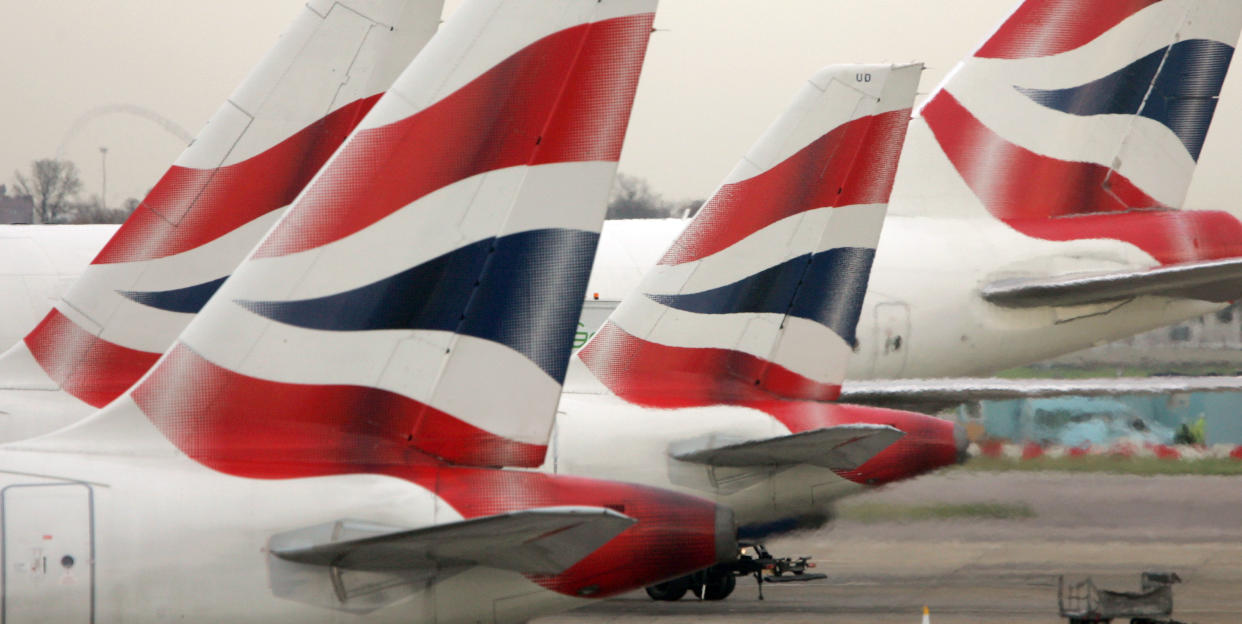Coronavirus: UK firms could furlough up to 11 million workers

UK firms could furlough up to 11 million workers as the government covers wage bills to get through the coronavirus crisis, according to new figures.
A survey published on Wednesday shows more than one in three UK firms plan to furlough at least three-quarters of their staff.
British Airways became the latest firm set to furlough tens of thousands of workers this week, putting them on temporary paid leave funded through a new government grant scheme. The Unite union has announced workers voted overwhelmingly to back the plan.
The survey suggests take-up for the government’s ‘furloughing’ job retention scheme could be higher than expected by officials, costing between £30bn and £40bn ($49.3bn).
The data is based on a business poll by the British Chambers of Commerce (BCC), with analysis by the Resolution Foundation think tank.
Read more: Firms stop hiring at fastest pace since financial crisis in 2009
Chancellor Rishi Sunak announced the “unprecedented” subsidies to workers’ wages last month. Employers can seek refunds for 80% of pay, up to a £2,500-a-month cap, for workers who would otherwise be laid off. They cannot work while receiving the payments, but remain employed.
The government hopes to prevent job losses on the scale of the global financial crisis and ensure a faster recovery. Unions, firms and economists have welcomed the scheme.
Yet some worry about soaring government debt and even fear it could discourage movement into in-demand roles in healthcare, food and distribution. Certain companies with typically huge revenue, profits and highly paid staff on their books, including some Premier League football clubs, have also faced intense scrutiny about whether they really need the scheme.
Business leaders’ more pressing concern is whether the scheme will work at all for many firms. With wage subsidies paid as refunds rather than upfront, firms have to foot the short-term wage bill when many have seen their income collapse.
Read more: UK workers ‘left with nothing’ by small print of government schemes
The BCC survey found 57% of firms who responded had three months’ or less of cash reserves, and 6% — more than one in 20 — had already run out of cash.
The government’s coronavirus business interruption loan scheme (CBILS) and separate grant schemes are aimed at easing cashflow woes and keeping firms afloat.
Adam Marshall, director general of the BCC, warned many firms faced a “cliff-edge scenario” because of delays accessing government loans. While 19% of firms planned to use the loans, interest-free for 12 months, just 1% had successfully applied for one, according to its survey.
“The complexity of the application process and a slow or lack of response from the relevant body were cited as reasons for those who were unsuccessful,” said the BCC in a press release.
Torsten Bell, chief executive of the Resolution Foundation, praised the “bold and ambitious” wage scheme despite highlighting its high cost. “The economic and social cost of mass unemployment in the absence of such a scheme would be far, far greater,” he said.


